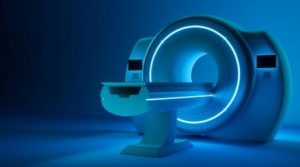The cost of a Full Body MRI Scan in India varies from ₹ 12500 to ₹ 35150 in India, depending on the body area being evaluated and wherein the test is being performed, among other factors. Furthermore, other expenditures, such as the number of technicians required to conduct the test and the equipment needed to process the picture, maybe incurred in addition to the above.
If you are doing a full-body MRI Scan in Mumbai or Pune, it may cost you around ₹ 21250 – ₹ 25000
Precisely what people should expect in the days immediately before the scan is outlined below.
After you have completed your history form and have been determined to be suitable for an MRI, you will be injected with a fluid known as a contrast medium. This dye is injected into your body to improve the visibility of the interior body structure, and ink is refilled in a printer cartridge.
The gadolinium-based compounds are the most often used. This is because they are non-toxic to the body and have no adverse side effects. However, if you have a known allergy to a particular medication, it is best to contact your doctor ahead of time.
It is preferable to be thoroughly educated on the operation of an MRI machine and the scan itself to alleviate any concerns you may have regarding the procedure. As has already been established, magnetic resonance imaging (MRI) is a significant improvement over computed tomography and is in many respects more reliable and consistent than the latter.
What Is MRI Scan?

In medical terminology, MRI is an abbreviation for Magnetic Resonance Imaging, which employs radio waves to create a detailed graph of your body’s interior architecture. The scanner is in the shape of a tube or cylinder, and the patient must lay down within it to be scanned. Consider it similar to an X-Ray machine.
It is not harmful to have the scan performed. However, since you cannot move about in the tube, the equipment might be a little frightening at times. It is also necessary to maintain control over your breathing to get a good view of the afflicted region. In addition, while taking a photo, the scanner generates a lot of loud sounds, which is annoying. In many ways, it is comparable to a CT scan, which would be a computerized tomography, although it gives crisper findings in many circumstances.
An MRI Scan Is Extremely Important
Unless you’ve been engaged in an accident resulting in bones injury, soft tissue injury, or muscular difficulties, an MRI scan may be recommended. Despite these advances, many people are still unsure why and when an MRI scan should be performed, whether it is essential, and the long-term ramifications of being exposed to the intense magnetic field generated by an MRI scan. Let’s start with the fundamentals.
When do Physicians Suggest A Magnetic Resonance Imaging (MRI) Scan?
Because an MRI may offer a more detailed view of your muscles, ligaments, and bones, as well as any differences within them, it is recommended. As a result, it is pretty beneficial in the identification of medical conditions.
For example, in tumors or to identify any aberration inside the brain, an MRI is advised in certain situations. In addition, the MRI will provide an accurate image of any other tumor or development seen in or around the brain.
In cancer therapy, magnetic resonance imaging (MRI) scans are most often employed because of their accuracy in identifying tumors. Not only can the physicians pinpoint the precise position of cancer about its coordinates, but they can also monitor the tumor’s development or shrinkage over time. Additionally, during surgery, this precision aids in the prevention of unavoidable problems. An MRI may also detect tissue damage since it gives a more detailed body view than a CT scan. Additionally, in a significant advancement, it can monitor the reaction of the central nervous to different stimuli, which may assist physicians in determining the precise location of the disease. Because the photos are shot just a few seconds apart, this is conceivable.
Magnetic Resonance Angiography is a version of the MRI that operates similarly to the MRI but follows blood flow instead of the heart. Thus, it may aid in detecting a blocked aneurysm or even a tear in a blood artery. Beyond these applications, MRIs are employed in situations of bone fracture when a CT scan is not available.
Is It Possible For Everyone To Receive An MRI Scan?
Unfortunately, this is not the case. The use of such ferrous metals is strictly prohibited during the operation due to the very high magnetic field created by the scanning.
If the proper circumstances are not met in the scanning room, violent accidents have been known to occur. Therefore, any of the conditions listed you have ever been a patient condition listed below, an MRI is not recommended:
- If you’ve had a metallic, foreign item in your body, such as a permanent piercing, or if you have had hooks or nails inserted during surgery, you should seek medical attention.
- If you’ve had any surgery in the last couple of weeks, you should see your doctor.
- If you are pregnant and are now in the midst of your third trimester, see your doctor. MRI scans aren’t usually recommended for pregnant women since this procedure does not include ionizing radiation, which is dangerous to the fetus.
- If you have a pacemaker fitted in your body, you should see your doctor.
- If you’ve got a cochlear implant, you’ll want to know what to expect.



